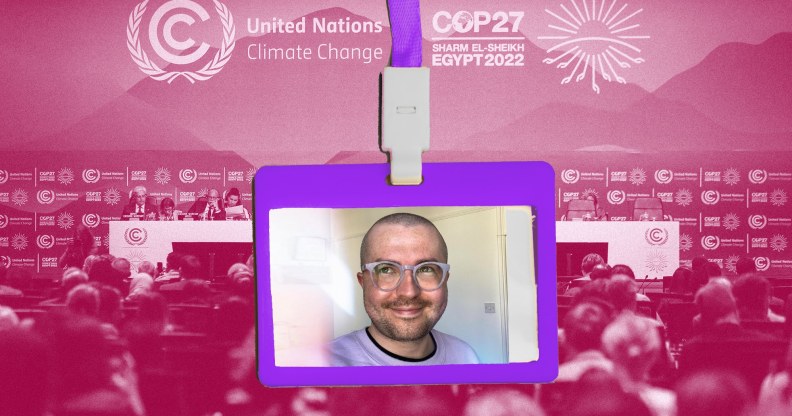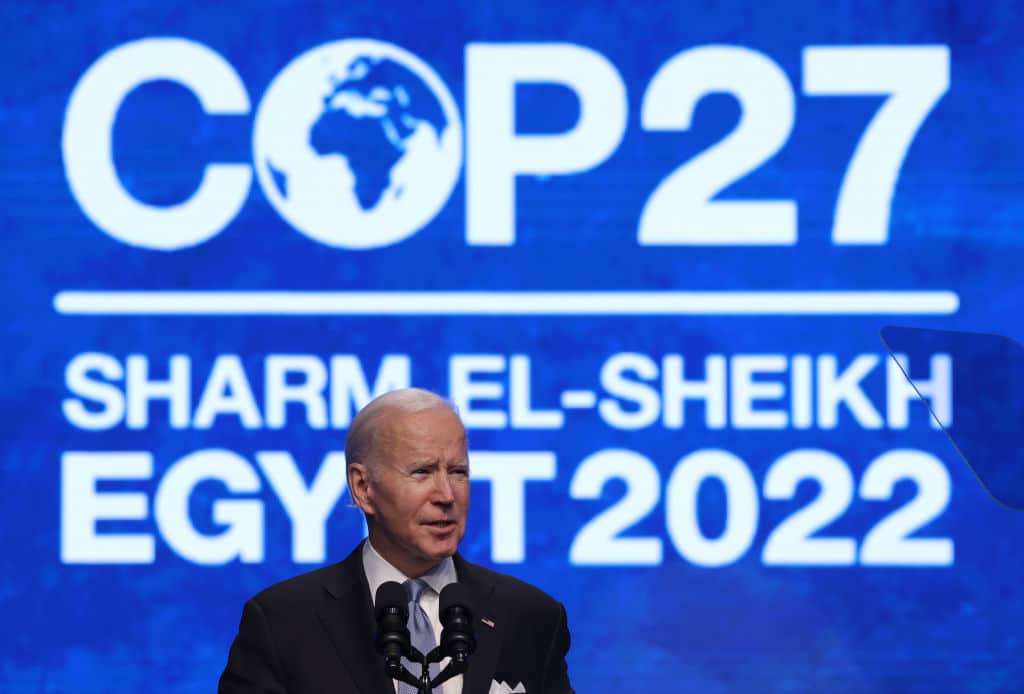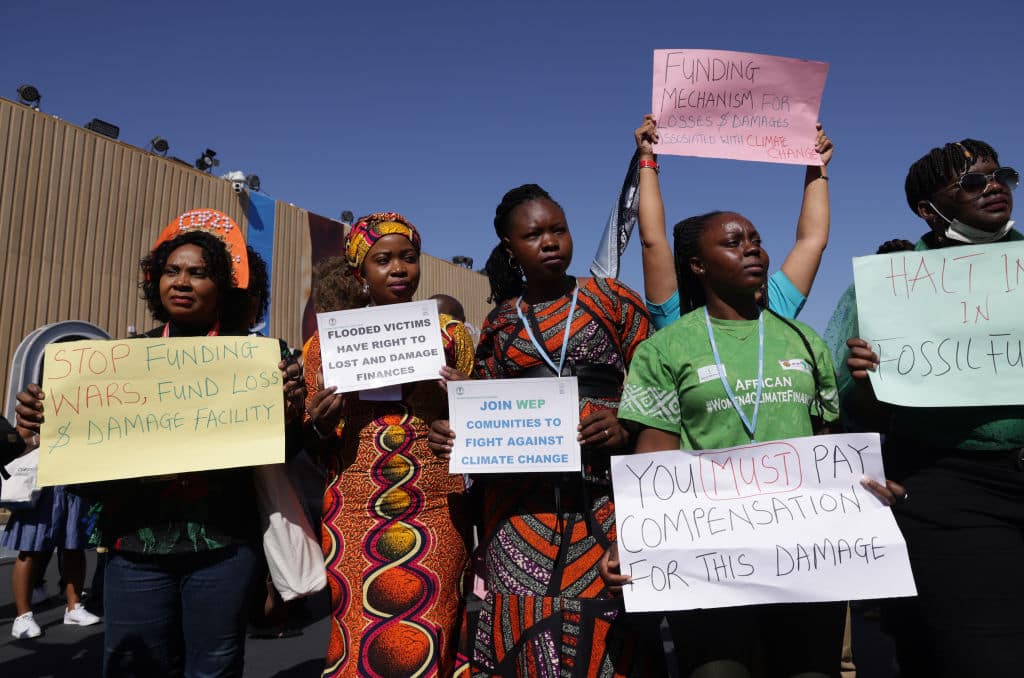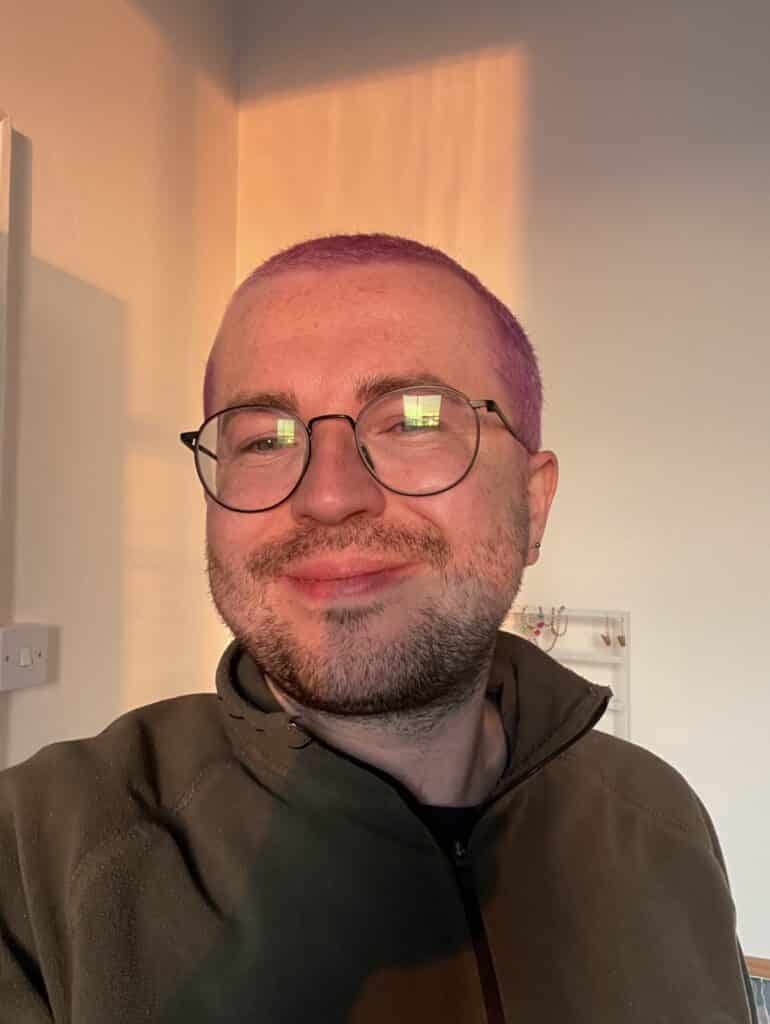I went to COP27 in anti-LGBTQ+ Egypt as an out, queer person. This is what it was like

Tom Pashby travelled to Egypt for COP27. (Getty/Tom Pashby)
Queer journalist Tom Pashby covered the COP27 climate summit from Egypt, where LGBTQ+ people are persecuted, criminalised and abused. This is what they encountered.
I’m non-binary and agender and I am visibly queer in most situations. I also work as a journalist for an organisation involved with the climate movement and I personally want to play an active role in tackling the climate emergency.
There should be no tension between these two parts of my life. But this year, I had to balance my status as an out LGBTQ+ person with my desire to work at the COP27 climate summit.
In 2022, the annual COP summit (formally the UN Climate Change Conference) was held in Sharm El-Sheikh, Egypt.
Egypt’s government is a military dictatorship with an internationally condemned human rights record, including LGBTQ+ oppression. Egyptian police arbitrarily arrest LGBTQ+ people and sbuject them to abuse and torture, Human Rights Watch has reported, prosecuting some under vague “debauchery” laws, and organisers were urged to move the summit. They declined.

Joe Biden speaks at the COP27 climate conference. (Getty)
A popular refrain within the movement is that “there is no climate justice without social justice”, and a significant section of the global climate movement is queer and loudly so.
Any large movement will, naturally, have some LGBTQ+ members. But the climate movement also attracts queer people because we know what it’s like to be othered and to experience oppression. The climate emergency is another part of oppression, wrought by rich, historically highly polluting countries against those poorer countries in the Global South who have been experiencing the impact of climate chaos for decades.
Before I got to COP 27, a colleague of mine spoke with one of our connections in Egypt, and told them I am non-binary. The connection, an Egyptian national, responded by saying: “That’s illegal”.
I later met this Egyptian, and we had many conversations about the political situation in Egypt, talking about Islamic extremism, oppression of women and LGBTQ+ rights, and they made me feel welcomed.
I discussed my concerns about attending the summit with friends, colleagues, and my therapist. Part of me wanted to approach the situation in a very noisy, activist way, using my privilege as a white, middle-class, able-bodied person with a British passport to pressure the Egyptian government into doing better, in solidarity with queer Egyptians and other queer people attending the summit.

African activists demanding climate finance and compensation payments from rich countries to poor countries disproportionately affected by climate change and fossil fuel exploitation at COP27. (Getty)
That approach may have put me at risk of being turned away at the border in Egypt, or worse, into a collision course with the Egyptian police. I had to balance my personal safety, my mental health, my responsibilities at work, and my wish to be a campaigner.
Within the past 12 or so months I have had bruising experiences with my LGBTQ+ activism, and that was in the relative safety of Brighton. Given how much worse the situation is in Egypt, I decided to be quiet, shave my head, take off my gel nails and get on with my job, keeping my activism to this writing after I had left Egypt.
When I was in Egypt, I think I spotted two visibly queer people at the summit – an event which attracts upwards of 40,000 delegates. Those brave LGBTQIA+ people had to navigate intense airport security, and even more intense security around the summit. Hundreds, or maybe thousands, of police, paramilitary and military guarded the conference, ostensibly from terrorism, and their presence created a psychologically oppressive environment for anyone who deviates from the mainstream, including women.
At dinner one evening, I sat opposite another non meat-eater. We got on well and enjoyed our veggie corner. I later found out that the vegetarian was gay and that they had a conversation with an employee of the Egyptian government, who, when he found out they were gay simply said: “No.”

The author. (Tom Pashby)
During the meal, I was misgendered a number of times, which was good because it meant I was passing as cis, but still made me uncomfortable because it was proof that I wasn’t living authentically.
As soon as I was halfway through the summit, I was already fantasising about re-queering myself. I have booked an appointment to get my ears re-pierced and I will be dying my hair and getting my nails painted. On my first day back in Brighton I felt massive relief when I could put on my hot pink dungarees and go out and have no one bat an eyelid because my queer self is accepted as part of normal life here.
I hope that the UNFCCC (the United Nations Framework Convention on Climate Change, the body responsible for COPs) think carefully about where they hold COPs in future to make sure they are safe environments for all, and remember that there is no climate justice without social justice.

